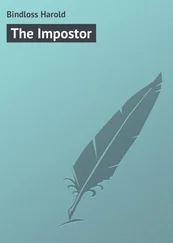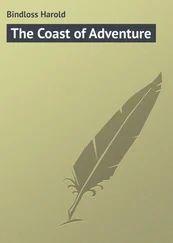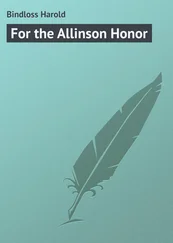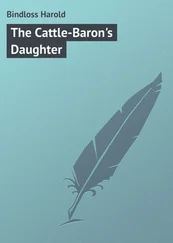Harold Bindloss - Johnstone of the Border
Здесь есть возможность читать онлайн «Harold Bindloss - Johnstone of the Border» — ознакомительный отрывок электронной книги совершенно бесплатно, а после прочтения отрывка купить полную версию. В некоторых случаях можно слушать аудио, скачать через торрент в формате fb2 и присутствует краткое содержание. Жанр: foreign_prose, на английском языке. Описание произведения, (предисловие) а так же отзывы посетителей доступны на портале библиотеки ЛибКат.
- Название:Johnstone of the Border
- Автор:
- Жанр:
- Год:неизвестен
- ISBN:нет данных
- Рейтинг книги:4 / 5. Голосов: 1
-
Избранное:Добавить в избранное
- Отзывы:
-
Ваша оценка:
- 80
- 1
- 2
- 3
- 4
- 5
Johnstone of the Border: краткое содержание, описание и аннотация
Предлагаем к чтению аннотацию, описание, краткое содержание или предисловие (зависит от того, что написал сам автор книги «Johnstone of the Border»). Если вы не нашли необходимую информацию о книге — напишите в комментариях, мы постараемся отыскать её.
Johnstone of the Border — читать онлайн ознакомительный отрывок
Ниже представлен текст книги, разбитый по страницам. Система сохранения места последней прочитанной страницы, позволяет с удобством читать онлайн бесплатно книгу «Johnstone of the Border», без необходимости каждый раз заново искать на чём Вы остановились. Поставьте закладку, и сможете в любой момент перейти на страницу, на которой закончили чтение.
Интервал:
Закладка:
"Where they had a bar?"
"Precisely. A bar with a fetching girl in it."
"It wouldn't work," said Andrew firmly. "I remember what happened when I landed you at Douglas – and a poaching escapade with some Creetown quarrymen on the same cruise. You have a talent for getting into trouble. Well, if you won't come with me, I'll have to make Appleyard my headquarters for a time."
"I hope you will," Dick replied with feeling. "Has it ever struck you that Appleyard might be yours?"
Andrew's face grew stern.
"Appleyard belongs to you and, what's more, you belong to it. It's your duty to pull yourself together and take care of the estate, to marry and bring up your children to be a credit to your name. Instead, you're dragging it in the dirt, making shabby betting men and turf sharpers your friends, and, I'm half afraid, getting into speculative money-lenders' hands."
Dick winced and Andrew saw that his random shot had scored.
"If you're in difficulties, I might raise a hundred pounds or so," he went on. "If, as I suspect, that isn't half enough, we'll go and see Mackellar before you get in too deep."
Mackellar was the acting executor of Dick's father's will.
"I'll think over it," Dick answered; and there was something that puzzled Andrew in his expression.
"Very well. Did you tell Staffer what the doctor said?"
"I wasn't quite as frank with him as I've been with you; one isn't proud of being a lame duck. Still, I imagine he has a pretty accurate notion of how things are with me."
"Then he ought to pull you up; he has the power."
"That's doubtful. I don't think you're quite fair to Staffer. I might have got a stepfather of a very different kind."
"It might have been better if you had," Andrew dryly rejoined.
Dick flushed.
"I wish you'd leave Staffer alone; I won't have him run down."
"I didn't mean to run him down," Andrew said.
"Well, perhaps you didn't consciously. You'd try to conquer your prejudices, but you're antagonistic."
Andrew gave Dick a shrewd glance.
"I wonder how Staffer feels about me?" he ventured.
"You're not likely to find out," Dick answered with a laugh. "I suppose he has his failings, but he never gives himself away."
When Andrew went to his room that night he sat beside his window for a long time, with a thoughtful frown. The task he had undertaken would not be an easy one.
CHAPTER V
SWEETHEART ABBEY
Soon after their arrival Whitney and Andrew drove back to the boat, which was moored in the mouth of a stream at some distance from Appleyard. It was a bright morning and they sat smoking in the cockpit when they had shaken some of the canvas and laid their sea clothes and blankets out to dry.
Behind the white beach, a strip of marish heath led back to the broad belt of cultivated land, with neat farmsteads scattered about; in front, the narrow channel, in which the shallow-bodied boat lay nearly upright, wound seaward through a great stretch of sand. The open sea was not visible, but three or four miles away a glistening streak that seemed to be in motion caught the light. In the middle distance a green lagoon and two ribands of water were rapidly widening. Flocks of black and white oyster-catchers fluttered about the banks of the channels, and long rows of salmon nets ran back along the shore.
"This is a curious place to navigate," Whitney remarked. "You were right in insisting on shallow draught and a centerboard."
"The shoals are not the worst," Andrew replied. "The tide runs up these gutters very fast, and, as a rule, you can't take out an anchor if you get aground."
"But that's the first thing one generally does."
"It's dangerous here. If the anchor held until she floated on the flood tide, the strain on the cable would probably pull her down. If it didn't hold, which is much more likely, it would check her while she drove across the bank, sheering athwart the stream, in danger of rolling over. The safest plan is to keep all sail set and try to make for deep water as soon as she floats."
Whitney glanced at the nearest channel. A small white ridge, perhaps six inches high, stretched from bank to bank, moving forward about as fast as one could walk, and as the wave passed on the riband of water changed into a lake. He thought it would not be pleasant to meet the advancing tide at some distance from the land.
On looking round, Whitney saw a man walking toward them across the bank. The fellow was old and his brown face was deeply lined. He wore a yellow oilskin cap, an old blue jersey, and rubber waders that reached to his thighs. Clambering on board, he nodded to Andrew.
"Weel," he said, "I'm glad to see ye back, an' it's a bonny wee boat ye have got."
"She's not bad for work among the shoals, but she's not the best type for the long seas you get in open water," Andrew replied, and turned to Whitney. "You might bring up the bottle in the port locker, Jim, and the soda."
"Ye can let the sodda bide; I've nae use for't." When Whitney returned the fisherman filled his glass. "Here's til ye an' her! Ye have given her a right name," he said.
"Why's the name good? What does Rowan mean?" asked Whitney.
"The mountain-ash. The old mosstroopers sometimes wore a spray in their steel caps as a protection against witchcraft and bad luck. We're descendants of the Norse pirates, and the ash was the Scandinavians' sacred Ysdragil, the tree of life."
"You're a curious lot," Whitney remarked. "I guess our beachcombers don't know much about archæology: they don't have superstitions a thousand years old."
"Were ye thinking o' making a trip to the deep water doon wast?" the Scotsman inquired.
"I don't know yet. We might do some shooting here. Is there much fowl about?"
"Ye'll get shellduck noo, an' a few teal; whaups, too, if ye're wanting them, but the lag-geese an' the bernicle are no' here yet." He paused and added: "I wouldna' say but it might be better if ye bide until they come."
Andrew looked hard at him.
"Why?"
"I'm thinking ye're wanted here. It would be an ill thing to see Appleyard gang doon, and it might be yours some day."
"It's my cousin's and he's younger than I am," Andrew answered with a frown.
"Just that! Ye're leal, we ken. Weel, as ye're fond o' the young laird, it might be wiser to keep an eye on him. He's overmuch under yon foreigner's thumb."
"How's the fishing?" Andrew asked pointedly.
The old fellow broke into a slow chuckle.
"It might be better an' it might be waur; there's ower many o' the Board's watchers here awa' for my liking. An' noo, I'll need to win ashore before the tide's on the bank."
He went off across the sands and Whitney turned to Andrew with a smile.
"You people leave a good deal to the imagination, but, so far as I could understand him, he gave you a hint or two. What's his business?"
"Salmon-fishing with a drift net. I've known Jock Marshall since I was a boy, and I believe he takes a well-meaning interest in me."
"Why did he call Staffer a foreigner?"
"In a sense, he is a foreigner, although he's been a naturalized British subject for some time. We knew nothing about him until he married Dick's mother, but there's reason to believe his name used to be Von Stauffer, or something like it. Mrs. Woodhouse was born in Austria, but she came over young, and her husband was all right."
Whitney was not much interested.
"What about to-morrow?" he asked.
"If the breeze holds, we'll have no trouble in crossing the sands to New Abbey. Elsie and Dick will come, and I expect you'll enjoy the trip. It's an interesting place."
As they stowed the sails the boat suddenly rose upright, drifted a few yards, and then brought up with a jar of tightening cable while the tide splashed against her planks. Launching the light dinghy, they paddled shoreward with the stream.
Читать дальшеИнтервал:
Закладка:
Похожие книги на «Johnstone of the Border»
Представляем Вашему вниманию похожие книги на «Johnstone of the Border» списком для выбора. Мы отобрали схожую по названию и смыслу литературу в надежде предоставить читателям больше вариантов отыскать новые, интересные, ещё непрочитанные произведения.
Обсуждение, отзывы о книге «Johnstone of the Border» и просто собственные мнения читателей. Оставьте ваши комментарии, напишите, что Вы думаете о произведении, его смысле или главных героях. Укажите что конкретно понравилось, а что нет, и почему Вы так считаете.












